E.Leclerc sees sales up in Poland despite Sunday trading ban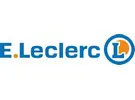 E.Leclerc Polska, the Polish arm of the French retail operator, posted a 3.89% sales increase last year to PLN 2.91bln, despite the introduction of a Sunday trading ban in he country. Commenting on its performance, Jean-Philippe Magré, president of E.Leclerc Polska, said that in 2017, Sunday trading accounted for 7% of its turnover, and to combat the ban, the retailer "undertook strong promotional activities and extensive marketing campaigns" during the rest of the week, news portal dlahandlu.pl reported. E.Leclerc's promotional strategy in 2018 was largely focused around fresh products, including meat, fruit and dairy products, with a focus on offering weekend offers on a Thursday, to negate the Sunday trading ban.
E.Leclerc Polska, the Polish arm of the French retail operator, posted a 3.89% sales increase last year to PLN 2.91bln, despite the introduction of a Sunday trading ban in he country. Commenting on its performance, Jean-Philippe Magré, president of E.Leclerc Polska, said that in 2017, Sunday trading accounted for 7% of its turnover, and to combat the ban, the retailer "undertook strong promotional activities and extensive marketing campaigns" during the rest of the week, news portal dlahandlu.pl reported. E.Leclerc's promotional strategy in 2018 was largely focused around fresh products, including meat, fruit and dairy products, with a focus on offering weekend offers on a Thursday, to negate the Sunday trading ban.
Source: esmmagazine.com
Metro: Sale of German Real hypermarkets is making progress German wholesaler Metro said it expected non-binding offers to be made soon for its loss-making Real hypermarkets chain, with a binding offer to come six to eight weeks later. Metro Chief Executive Olaf Koch reiterated that Metro wants to sell Real as a whole, but said the process was difficult due to competition regulations. Koch told journalists he expected a positive price for Real due to its real estate portfolio and ecommerce business, adding there was more than a handful of interested parties. Industry bankers had predicted that Metro might have to effectively pay a buyer to take the chain off its hands. Rival German chains could be interested in parcels of stores, but private equity firms are seen as the most likely bidders.
German wholesaler Metro said it expected non-binding offers to be made soon for its loss-making Real hypermarkets chain, with a binding offer to come six to eight weeks later. Metro Chief Executive Olaf Koch reiterated that Metro wants to sell Real as a whole, but said the process was difficult due to competition regulations. Koch told journalists he expected a positive price for Real due to its real estate portfolio and ecommerce business, adding there was more than a handful of interested parties. Industry bankers had predicted that Metro might have to effectively pay a buyer to take the chain off its hands. Rival German chains could be interested in parcels of stores, but private equity firms are seen as the most likely bidders.
Source: reuters.com
Holland: Albert Heijn and HEMA to open pilot stores Albert Heijn has partnered with HEMA to trial two stores where shoppers can buy groceries from both retailers. Albert Heijn will join two existing HEMA urban stores offering “a full range of fresh and sustainable products”. For Albert Heijn, the partnership “is a further underlining of the development of convenience stores and food service in the centre locations of large cities to serve customers even better”. The retailers are currently investigating the exact store locations, which are expected to open later this year.
Albert Heijn has partnered with HEMA to trial two stores where shoppers can buy groceries from both retailers. Albert Heijn will join two existing HEMA urban stores offering “a full range of fresh and sustainable products”. For Albert Heijn, the partnership “is a further underlining of the development of convenience stores and food service in the centre locations of large cities to serve customers even better”. The retailers are currently investigating the exact store locations, which are expected to open later this year.
Source: retailanalysis.igd.com
Germany: Metro AG reiterates FY forecast despite Q1 profit drop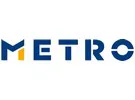 Metro AG has stuck to its full-year forecast despite a drop in profit for its fiscal first quarter. Metro had previously reported a slight rise in sales for the quarter. For the three months to 31 December, the wholesale group said that operating profit was down 7.9% to €335mln, while pre-tax profit fell by 11.2% to €296mln, and net profit slumped by 12.7% to €202mln. However, Metro noted that results were hurt by fluctuating currencies, with underlying profit edging up 0.4% to €181mln.
Metro AG has stuck to its full-year forecast despite a drop in profit for its fiscal first quarter. Metro had previously reported a slight rise in sales for the quarter. For the three months to 31 December, the wholesale group said that operating profit was down 7.9% to €335mln, while pre-tax profit fell by 11.2% to €296mln, and net profit slumped by 12.7% to €202mln. However, Metro noted that results were hurt by fluctuating currencies, with underlying profit edging up 0.4% to €181mln.
Source: kamcity.com
Spain: DIA gross sales fall 14.9% to €9.39bln in 2018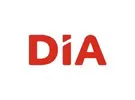 Spain-based DIA has reported its 2018 results, with gross sales under banner falling by 14.9% - a contraction of 0.9% in constant currency terms - to €9.39bln. The retailer reported that group like-for-like sales fell by 3.6% in 2018, adjusted by inflation in Argentina, versus a contraction of 4.9% in 2017. At the end of 2018, DIA operated a total of 6,157 stores with 336 store openings and 280 closures. Adjusted EBITDA fell 35% to €337.9mln due to the discontinuation of Clarel in Spain and Portugal. Meanwhile, net debt increased by €506mln to €1.45bln.
Spain-based DIA has reported its 2018 results, with gross sales under banner falling by 14.9% - a contraction of 0.9% in constant currency terms - to €9.39bln. The retailer reported that group like-for-like sales fell by 3.6% in 2018, adjusted by inflation in Argentina, versus a contraction of 4.9% in 2017. At the end of 2018, DIA operated a total of 6,157 stores with 336 store openings and 280 closures. Adjusted EBITDA fell 35% to €337.9mln due to the discontinuation of Clarel in Spain and Portugal. Meanwhile, net debt increased by €506mln to €1.45bln.
Source: retailanalysis.igd.com
Suning buys Wanda department store chain, expanding China retail empire Wanda Group, the big China real estate developer led by billionaire Wang Jianlin, has continued to reduce its non-core business by selling a department store chain to Suning.com for an undisclosed amount. Suning, one of China’s largest online and offline retailers, said in a press release it will take over 37 department stores with a membership of 4mln consumers. Suning's Shenzhen-traded shares rose by 3.1% after the announcement to a more than two-and-a-half-month of 11.34 yuan.
Wanda Group, the big China real estate developer led by billionaire Wang Jianlin, has continued to reduce its non-core business by selling a department store chain to Suning.com for an undisclosed amount. Suning, one of China’s largest online and offline retailers, said in a press release it will take over 37 department stores with a membership of 4mln consumers. Suning's Shenzhen-traded shares rose by 3.1% after the announcement to a more than two-and-a-half-month of 11.34 yuan.
Source: forbes.com
Dunnes retains its position as Ireland’s top supermarket: Kantar Worldpanel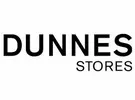 Dunnes Stores has retained its position once again as Ireland’s leading supermarket, following a ‘recording-breaking’ festive period, with year-on-year sales growth of 3.4% for the industry. The Irish retailer secured 23.1% of the grocery market share, according to latest figures from Kantar Worldpanel in Ireland, for the 12 weeks ending 27 January 2019. The report showed that Dunnes attracted enough new shoppers to boost its sales by 4%. “Dunnes continues to engender loyalty among its existing shoppers with its strong premium own label and branded ranges. Crucially, the retailer has won over new shoppers as well, welcoming an extra 20,000 households through its doors compared with last year.” Tesco secured 22.1% of the market share, SuperValu 21.6% followed by Lidl with 10.6% and Aldi 10.9% respectively.
Dunnes Stores has retained its position once again as Ireland’s leading supermarket, following a ‘recording-breaking’ festive period, with year-on-year sales growth of 3.4% for the industry. The Irish retailer secured 23.1% of the grocery market share, according to latest figures from Kantar Worldpanel in Ireland, for the 12 weeks ending 27 January 2019. The report showed that Dunnes attracted enough new shoppers to boost its sales by 4%. “Dunnes continues to engender loyalty among its existing shoppers with its strong premium own label and branded ranges. Crucially, the retailer has won over new shoppers as well, welcoming an extra 20,000 households through its doors compared with last year.” Tesco secured 22.1% of the market share, SuperValu 21.6% followed by Lidl with 10.6% and Aldi 10.9% respectively.
Source: checkout.ie
South Africa: Spar Group posts 8.2% rise in 17-week sales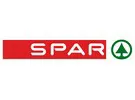 South African retailer and wholesaler Spar Group Ltd reported an 8.2% increase in 17-week sales, buoyed by its Southern Africa operations. Spar, a grocery chain which also sells building materials and medicine in Southern Africa, said group sales for the 17-weeks ended January 26, rose to 36.53bln rand ($2.65bln) from 33.78bln rand in the comparative period last year.
South African retailer and wholesaler Spar Group Ltd reported an 8.2% increase in 17-week sales, buoyed by its Southern Africa operations. Spar, a grocery chain which also sells building materials and medicine in Southern Africa, said group sales for the 17-weeks ended January 26, rose to 36.53bln rand ($2.65bln) from 33.78bln rand in the comparative period last year.
Source: reuters.com
India: Swiggy moves beyond food to deliver everyday needs at home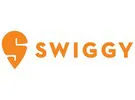 Food ordering and delivery platform Swiggy said it has launched ‘Swiggy Stores’, moving beyond its core food delivery segment to provide access to consumers items across multiple categories. The company will deliver fruits and vegetables, flowers, baby care and medicines, among others, Swiggy said in a statement. With the launch of these stores, Swiggy wants to become the one-stop delivery app that enables access to every store in the city, it said.
Food ordering and delivery platform Swiggy said it has launched ‘Swiggy Stores’, moving beyond its core food delivery segment to provide access to consumers items across multiple categories. The company will deliver fruits and vegetables, flowers, baby care and medicines, among others, Swiggy said in a statement. With the launch of these stores, Swiggy wants to become the one-stop delivery app that enables access to every store in the city, it said.
Source: bloombergquint.com
US: Consumers are warming up to online grocery, report says According to IRI, consumers' increasingly positive attitude toward online shopping is resulting in greater sales gains. For the 52 weeks ended December 30, 2018, grocery e-commerce sales totaled $58.9bln - a 35.4% increase over the previous year. While nonfood and packaged goods led online sales, IRI's latest Consumer Connect Survey found shoppers are warming up to the idea of buying frozen and refrigerated groceries. "While fresh and frozen items rank among the bottom of e-commerce sales categories, there are signs of significant growth, indicating that retailers - likely with the support of such flexible options as click-and-collect - are starting to crack the code", the firm noted. The 2,200 survey respondents report that they tend to find better deals when buying online for personal care, beauty and home care products but say they're less likely to find deals when purchasing food online. The survey also found that shoppers were more conscious of spending money while shopping online than in traditional stores. Millennials and Gen X'ers are most likely to find value in online shopping but also report having the most difficulty affording essential groceries, IRI reported.
According to IRI, consumers' increasingly positive attitude toward online shopping is resulting in greater sales gains. For the 52 weeks ended December 30, 2018, grocery e-commerce sales totaled $58.9bln - a 35.4% increase over the previous year. While nonfood and packaged goods led online sales, IRI's latest Consumer Connect Survey found shoppers are warming up to the idea of buying frozen and refrigerated groceries. "While fresh and frozen items rank among the bottom of e-commerce sales categories, there are signs of significant growth, indicating that retailers - likely with the support of such flexible options as click-and-collect - are starting to crack the code", the firm noted. The 2,200 survey respondents report that they tend to find better deals when buying online for personal care, beauty and home care products but say they're less likely to find deals when purchasing food online. The survey also found that shoppers were more conscious of spending money while shopping online than in traditional stores. Millennials and Gen X'ers are most likely to find value in online shopping but also report having the most difficulty affording essential groceries, IRI reported.
Source: grocerydive.com
US: Driverless delivery startup Nuro gets $940mln SoftBank investment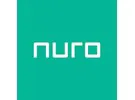 Autonomous technology startup Nuro said it raised $940mln from SoftBank Group Corp, which valued the Silicon Valley-based company at $2.7bln. Nuro was co-founded in 2016 by two former engineers of Google’s self-driving car project, Dave Ferguson and Jiajun Zhu. The funding by SoftBank came through its $100bln Vision Fund, which usually picks up big stakes in fast-growing technology companies. Last year, Nuro launched a self-driving delivery vehicle to run errands from picking up groceries to delivering dinner, and partnered with U.S. supermarket chain Kroger co to extend its services. The firm, which largely operates in the San Francisco Bay Area, said it will use the funds to expand its delivery service to new areas, add new partners, expand its fleet and grow its team.
Autonomous technology startup Nuro said it raised $940mln from SoftBank Group Corp, which valued the Silicon Valley-based company at $2.7bln. Nuro was co-founded in 2016 by two former engineers of Google’s self-driving car project, Dave Ferguson and Jiajun Zhu. The funding by SoftBank came through its $100bln Vision Fund, which usually picks up big stakes in fast-growing technology companies. Last year, Nuro launched a self-driving delivery vehicle to run errands from picking up groceries to delivering dinner, and partnered with U.S. supermarket chain Kroger co to extend its services. The firm, which largely operates in the San Francisco Bay Area, said it will use the funds to expand its delivery service to new areas, add new partners, expand its fleet and grow its team.
Source: reuters.com
US Foods reports Fourth Quarter and Fiscal Year 2018 earnings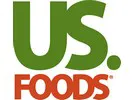 US Foods Holding Corp., one of the largest foodservice distributors in the United States, announced results for the fourth quarter and full fiscal year 2018. Fourth Quarter Fiscal 2018 Highlights: Total case volume decreased 0.8%; independent restaurant case volume increased 3.9%. Net sales increased 0.8% to $6.0bln. Gross profit of $1.1bln increased 1.6%. Income before income taxes decreased $5mln to $132mln. Net income decreased $156mln to $100mln. Adjusted EBITDA increased 2.4% to $297mln. Diluted EPS of $0.46; Adjusted Diluted EPS of $0.56. Fiscal Year 2018 Highlights: Total case volume decreased 1.2%; independent restaurant case volume increased 3.8%. Net sales increased 0.1% to $24.2bln. Gross profit of $4.3bln increased 2.1%. Income before income taxes increased $92mln to $496mln. Net income decreased $37mln to $407mln. Adjusted EBITDA increased 4.3% to $1,103mln. Diluted EPS of $1.87; Adjusted Diluted EPS of $2.03.
US Foods Holding Corp., one of the largest foodservice distributors in the United States, announced results for the fourth quarter and full fiscal year 2018. Fourth Quarter Fiscal 2018 Highlights: Total case volume decreased 0.8%; independent restaurant case volume increased 3.9%. Net sales increased 0.8% to $6.0bln. Gross profit of $1.1bln increased 1.6%. Income before income taxes decreased $5mln to $132mln. Net income decreased $156mln to $100mln. Adjusted EBITDA increased 2.4% to $297mln. Diluted EPS of $0.46; Adjusted Diluted EPS of $0.56. Fiscal Year 2018 Highlights: Total case volume decreased 1.2%; independent restaurant case volume increased 3.8%. Net sales increased 0.1% to $24.2bln. Gross profit of $4.3bln increased 2.1%. Income before income taxes increased $92mln to $496mln. Net income decreased $37mln to $407mln. Adjusted EBITDA increased 4.3% to $1,103mln. Diluted EPS of $1.87; Adjusted Diluted EPS of $2.03.
Source: businesswire.com
US: Walmart and Google-backed Deliv end online grocery partnership Walmart Inc and logistics firm Deliv pulled the plug on a key same-day grocery delivery partnership, dealing a setback in the retailer’s race against rival Amazon.com Inc to deliver groceries to customers’ homes. The world’s largest retailer began bolstering its partnerships with third-party courier firms to reach consumers in 100 U.S. cities last year, after failing to use Uber and Lyft to deliver groceries, and struggling in its attempt to use its own employees to deliver goods. Deliv, which was one of Walmart’s earliest partners with pilot programs in Miami and San Jose, served the retailer with a 90-day termination notice, and the two companies stopped working with each other in late January, according to two people familiar with the situation.
Walmart Inc and logistics firm Deliv pulled the plug on a key same-day grocery delivery partnership, dealing a setback in the retailer’s race against rival Amazon.com Inc to deliver groceries to customers’ homes. The world’s largest retailer began bolstering its partnerships with third-party courier firms to reach consumers in 100 U.S. cities last year, after failing to use Uber and Lyft to deliver groceries, and struggling in its attempt to use its own employees to deliver goods. Deliv, which was one of Walmart’s earliest partners with pilot programs in Miami and San Jose, served the retailer with a 90-day termination notice, and the two companies stopped working with each other in late January, according to two people familiar with the situation.
Source: reuters.com
